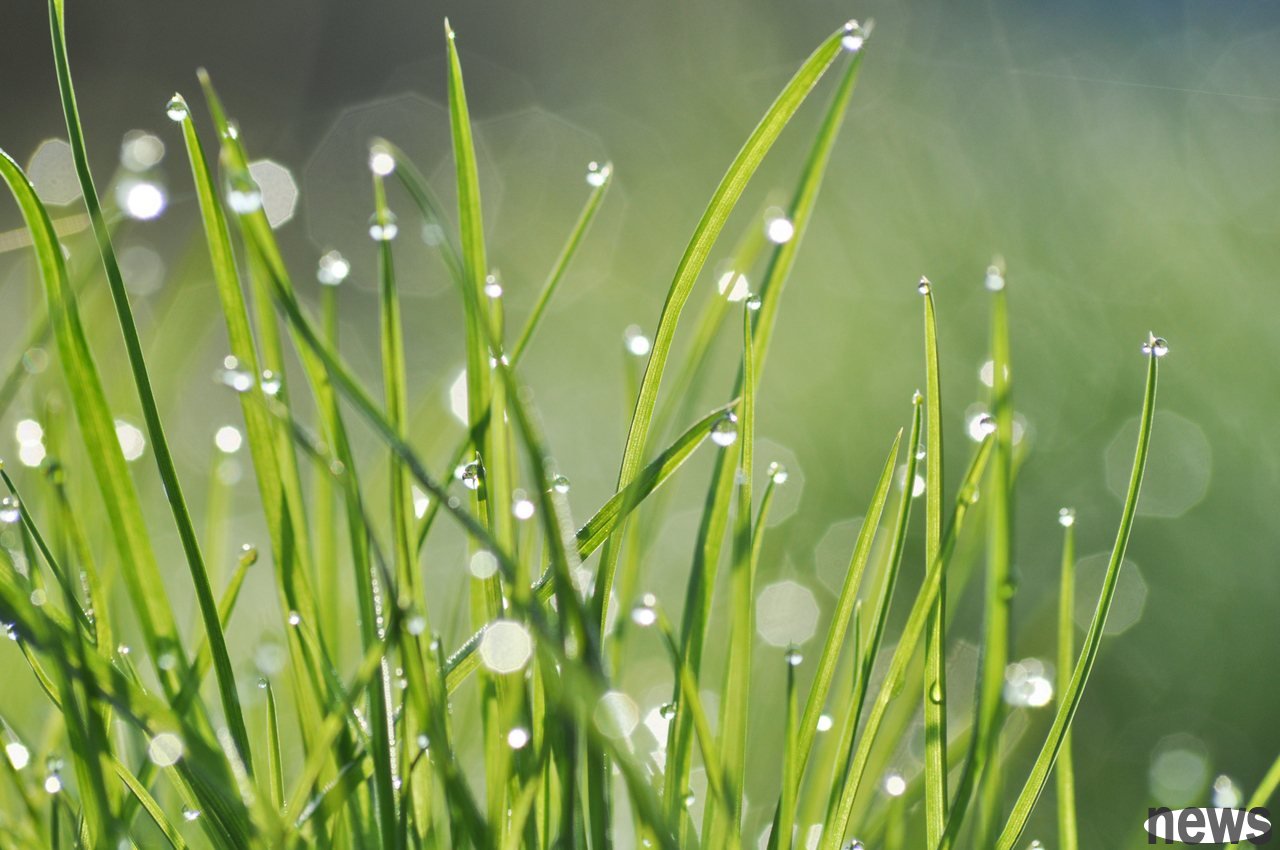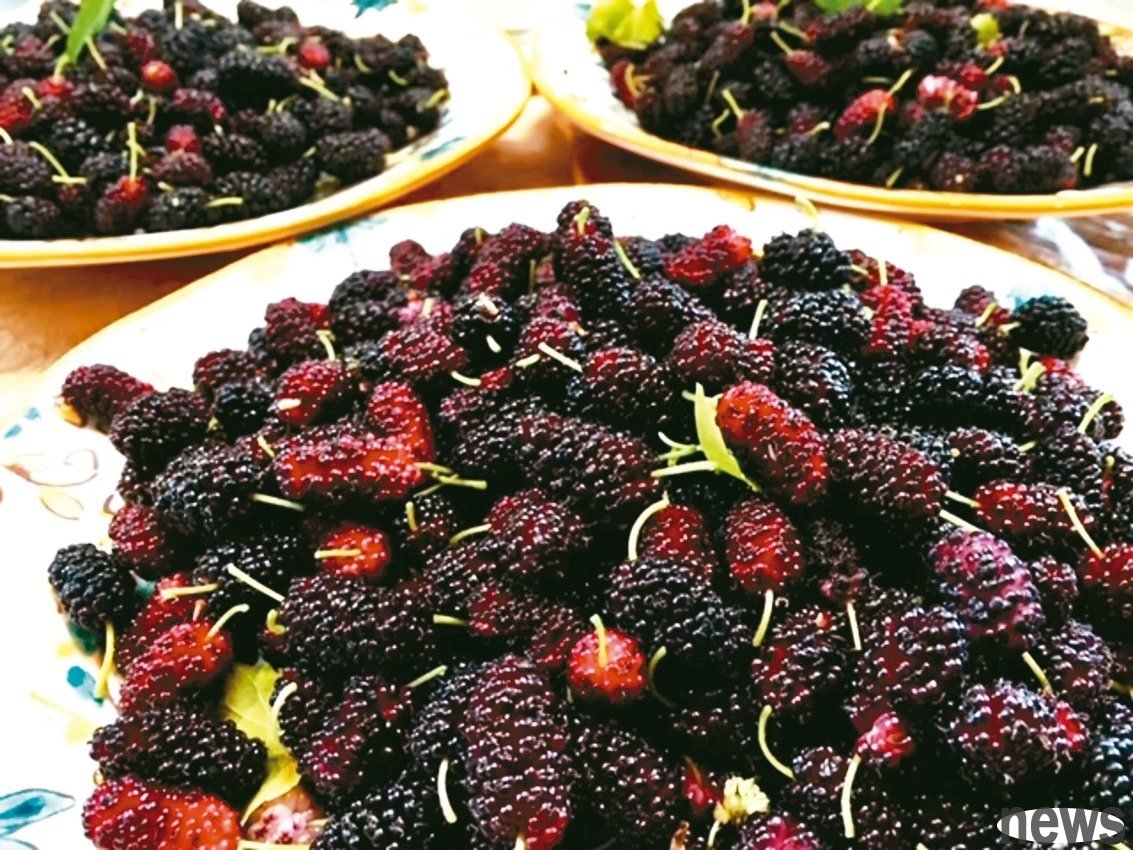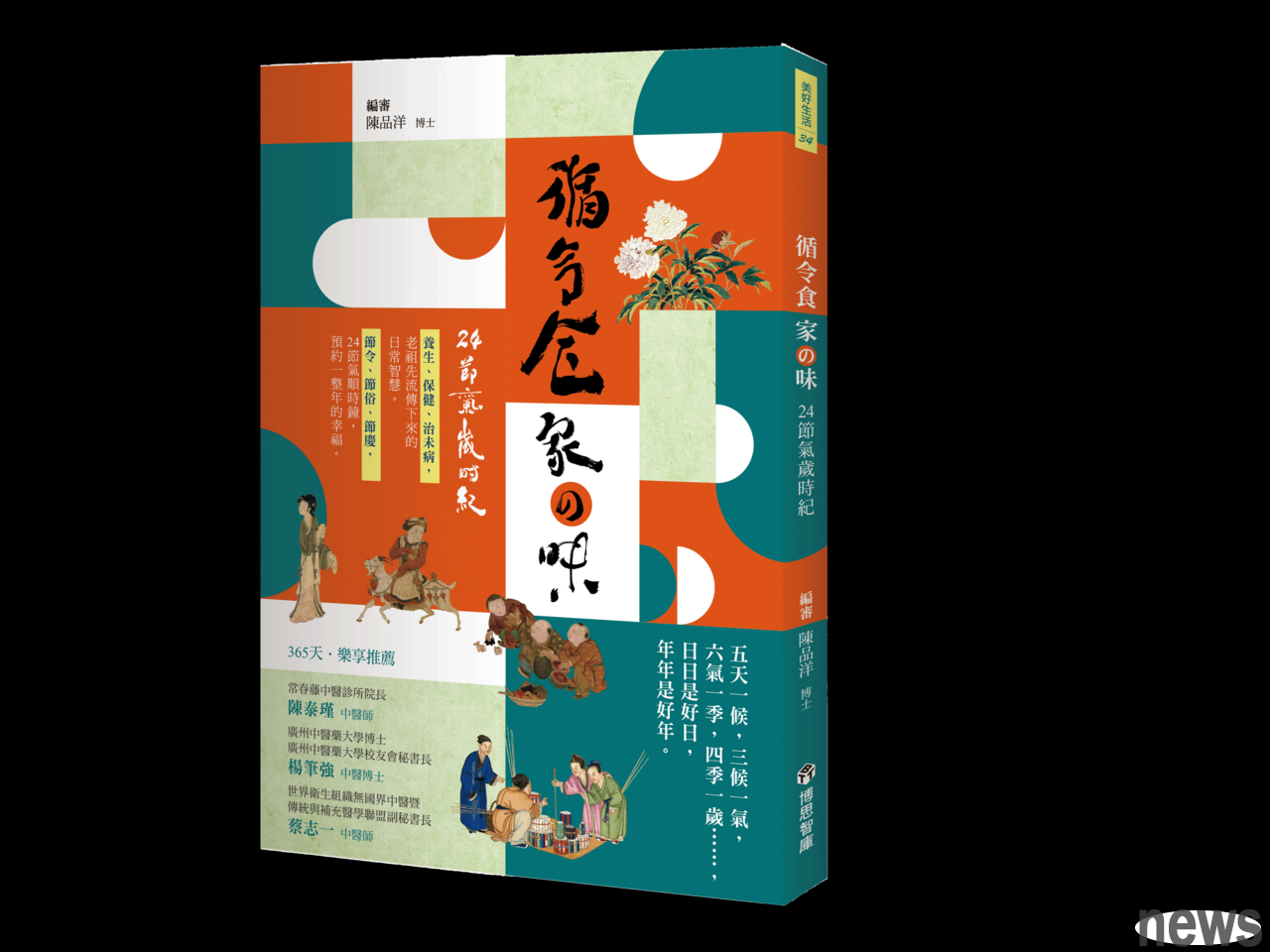
The last day of spring is the common saying: "The snow stops in Qingming Festival, and the snow stops in frost." This means that from this day on, the frost and snow finally leave.
Du Fu wrote: "The sky of Shu often rains at night, and the river is already clear." This is exactly how it describes the mood of the night rain. Since then, the abundant rains have caused duckweed to reproduce in large quantities, floating along the river, becoming a unique sight. The croaker-shot bird (say, cloth bird) seems to be urging people not to be lazy and work hard to achieve the success of the bright spring days. On the mulberry trees and hemp trees, we also began to see the birds in the hair. The natural scenery reminds people that it is late spring.
The sun rises in the quack of rain tea, and the five poisons are scattered, and in the "Collected Explanation of the Seventy-Two Monthly Orders" writes: "In the middle of March, after the rain, the earthy ointment moves, and now the valley is raining again. The rain is like raining in the fields of our public servants. The valley is sown at this time, from top to bottom." The rain is sown as the sky, and this is also the harvest period of spring tea.Because of the resurrection of the winter worm poisonous worms, people pray for harvesting crops and peace among the family and young, so they also post "South Rain Painting". "Qingqi Feng Feng Customs" mentions: "Picture the Five Poisons on a rainy day, drawing the zodiac, centipede, snake, bee, and fauna. Each of them is painted a stinger and announced that the household will post it to prevent poisonous worms." Or use five-color pictures to cut the five-poisonous morphology and stick it on the door lintel, so as to drive away the poisonous worms and cause disaster.
Ancient poets loved the slim rain. Not only was the beautiful scenery of the rain flowing, but the sound of tea drinking is also a major feature.
"The simplicity of the Qingcha is a natural musical music, and I enjoy the rain and joy in my life; I can do anything to the red and red things, but I can't afford to pay Nanke no luck." A long, light smoke flying in the valley, and a long, tea fragrance also rolls in a cup, adding to the leisure and interest of life.
The picking tea before Qingming Festival is called "Ming Jiancha", the buds are delicate and tender, and the tea tastes mellow; the picking tea after Qingming Festival and before the rain is called "Rain Jiancha", the tea leaves in clear sky and bright sky are full of water and the tea soup is rich; the picking tea between the rain and the beginning of summer is called "Ming Yu Tea", also known as "Erchun Tea". The buds in this period are fat and fragrant and fragrant.
Make a pot of cereal rain tea, filling the room with the faint fragrance of tea. Sitting on the bed, sip it carefully, and feeling the spring scenery of the smoke.
The rain is heavy, and the first priority is to remove moisture and relieve moistureThe book mentioned: "Dou refers to Gui as 沪 rain, which means that rain produces all kinds of grains. When the rain falls, the meaning of 沪沪沪沪沪沪沪沪沪沪沪沪沪沪沪沪沪沪沪沪沪沪沪沪沪沪沪沪沪沪沪沪沪沪沪沪沪沪沪沪沪沪沪沪沪沪沪沪沪沪沪沪沪沪沪沪沪沪沪沪沪沪沪沪沪沪沪沪沪沪沪沪沪沪沪沪沪沪沪沪沪沪沪沪沪沪沪沪沪沪沪沪沪沪沪沪沪沪沪沪沪沪沪沪沪沪沪沪沪沪沪沪沪沪沪沪沪沪沪沪沪沪沪沪沪沪沪沪沪沪沪沪沪沪沪沪沪沪沪沪沪沪沪沪沪沪沪沪沪�
Common sayings point out: "The rain is heavy, and the rain is wet in the beginning of summer." On the one hand, the wet rain brings nourishment and harvesting for crops, such as spring tea, plum fruit, peony, Chinese toon, etc. On the other hand, it also affects emotions, and the heart seems to be full of clouds. Chinese medicine theory says: "Wet evil is the source of all diseases." Especially in the transition from spring to summer, the temperature difference between morning and evening is large. At this time, it is very important to maintain internal and external balance.
The first priority in diet is to remove moisture from the spleen and stomach, clear heat, detoxify, strengthen the spleen and regulate the atmosphere"Su Xiao asked. "The Complete View of Saving Life" says: "Man is born with the atmosphere of heaven and earth, and is accomplished in the four-hour method." In spring, liver wood is strong, and the spleen is prosperous during the rainy period. According to the principle of nourishing the four-hour period, the first thing to pay attention to the spleen and stomach to remove moisture, one to clear heat and detoxify, the second thing to strengthen the spleen and regulate the air, and the third thing to remove moisture and relax the muscles. The following ingredients are as follows:
1. Chinese Toon: On the third day of the farm, it is the first dish of Chinese Toon sprouts on the market, also known as "vegetables on the tree". It is commonly said: "On the eighth day of March, eat Chinese Toon sprouts." "Bencao Materia Medica" records: "Chinese Toon can remove wind and detoxify, Chinese Toon leaves can grow hair, and jaundice can remove jaundice. Remove ascaris." "Bencao" also wrote: "Boon leaves can be boiled in water, can wash away scabs, scabies, and cervix." It can be said that it is used as both medicine and has the effects of strengthening the stomach and regulating the air, stopping the swelling and anti-inflammatory.
2. Yellow bean sprouts: sweet taste and cool nature, enter the spleen and the kidneys, have a variety of vitamins, which can prevent cardiovascular sclerosis, regulate diasterol, and have the effects of clearing heat, improving eyesight, replenishing blood and nourishing blood.
3. Mahara: sweet, sour, and swelling, liver, large kidney, bladder, also known as long-lived grass and five elements, "New Materia Medica" records: "It is mainly used to cervical and cervical warts, wipe it; drinks are responsible for nausea, irrigation, and blood flow; wash lips with sweat, and face is irritated." It is mainly used to treat symptoms such as clearing heat and detoxifying, bleeding and stopping diarrhea, diuresis and moisturization, and hyponeoplasty.
4.Mulberry: cold in nature, sweet and sour in taste, and can nourish the heart, liver, and kidney, also known as mulberry fruit and mulberry. The juice is like honey, sweet and delicious, and has a high nutritional value. It can be eaten or used as a medicine. It can prevent blood vessel sclerosis and skin aging. It has the functions of nourishing blood, promoting fluid and dryness, nourishing liver and kidneys, relieving eye fatigue, and improving immunity.

♦ ginger pepper sprout soup
Ingredients: 1 red pepper, 50 grams of yellow bean sprouts, ginger, sesame oil, white vinegar, salt, and Taibai powder. Appropriate amountsMethod:
1. Wash the yellow bean sprouts, cut the red pepper into small pieces, and prepare.
2. Preheat the oil and add the yellow bean sprouts and stir-fry, pour in white vinegar and stir-fry until 80% cooked, then prepare the pot and prepare.
3. Take the pot and add water and chicken soup, add ginger, and after boiling, add red pepper, then add fried yellow bean sprouts and appropriate flavoring ingredients, and cook for three minutes. Finally, add Taibai powder and thicken it, drizzle it with sesame oil, and it’s done.
♦ Lilac porridge
Ingredients: 30 grams of leeks, 50 grams of stew rice, suitable saltMethod:
1. Wash the leeks, cut them into sections, and prepare them. Wash the japonica rice and prepare it.
2. Take the pottery, add appropriate amount of water, add the stem rice and leeks and cook together.
3. After it is cooked, it will be done.
※This article is excerpted from Bosizhiku's "Xunling Food, Taste of Home: 24th Days of Age"

Author: Chen Pinyang
Publisher: Bosizhiku
Publishing Date: 2021/02/04